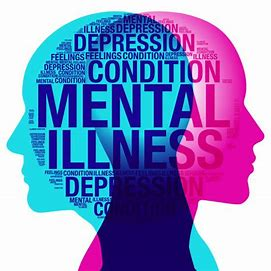The Wellbeing Team Update
Junior Secondary Guidance Officer – Anna Willis
 How to help teen girls’ mental health – 6 research-based strategies for parents, teachers and friends
How to help teen girls’ mental health – 6 research-based strategies for parents, teachers and friends- More emphasis on social support
Social and emotional connectivity between humans is likely one of the most potent weapons we have against significant stress and sadness. Studies have found strong links between a lack of parental and peer support and depression during adolescence. Support from friends can also help mitigate the link between extreme adolescent anxiety and suicidal thoughts. In one study of teens, social support was linked to greater resilience – such as being better able to withstand certain types of social cruelty like bullying.
- Supporting one another instead of competing
During the 1970s and 1980s, competition between women was seen as something that held women back. Unfortunately, this message seems to have been lost in the tsunami of media coverage about bodies, looks and social achievement. Research has found that social media encourages competition between girls, particularly around their physical appearance. Teaching girls at young ages to be cheerleaders for one another – and modelling that behaviour as grownups – can help ease the sense of competition that today’s teens are facing.
- Showcasing achievements
Thinking about your own appearance is natural and understandable. But an overemphasis on what you look like is clearly not healthy, and it is strongly associated with depression and anxiety, especially in women. Adults can play a key role in encouraging girls to value other qualities, such as their artistic abilities or intelligence. Childhood can be a canvas for children to discover where their talents lie, which can be a source of great satisfaction in life. One way that adults can help is simply by acknowledging and celebrating those qualities.
- Empowering women
Girls look to grown women for examples of how they can behave and what they can do. You may not be the chief executive officer of a huge corporation, but maybe you are a wonderful teacher, or maybe you run a small business that provides an important product or service. Modelling pro-women attitudes means valuing all of the roles that people play in a society. In addition, teaching the history behind women’s movements and other important steps toward equality, such as the women’s right to vote, is key to empowering girls to value themselves and their roles.
- An honest look at social media
Social media represents a unique form of human interaction that has taken on an outsize role in the lives of teens. This is magnified for teenage girls, for whom every social media interaction may feel consequential and potentially cataclysmic. Interacting in a fun and positive way with peers on social media platforms can be a positive and affirming experience. On the other hand, seeing the things that others post, and comparing it with your own stuff, can make people of any age feel anxious about how they’re appearing, and whether they’re being socially included or excluded. This anxiety applies to both boys and girls, but the potential for emotional distress seems to be higher for girls. Awareness of how social media has the capacity to influence your feelings and mental health seems to help people keep some distance from their interactions on social media. Adults can help girls by discussing with them how social media influences their feelings, their self-perception and even their body image.
- Teaching teens to recognise their feelings
Learning to recognise and label feelings doesn’t come automatically for many people. The good news, though, is that kids can learn ways to help themselves when they’re experiencing anxiety or depression. Kids can learn to appreciate how hugging their dog, playing a board game, or talking with their parent(s) can help reduce anxiety, once they understand the feelings.
We think it’s worth noting that everything discussed here can also be helpful for boys, who are by no means immune to mental health problems. Encouraging achievement recognition, understanding how moods can be influenced by social media, and increasing support for both boys and girls is a positive step.
This article is republished from The Conversation under a Creative Commons license. Read the original article. https://theconversation.com/how-to-help-teen-girls-mental-health-struggles-6-research-based-strategies-for-parents-teachers-and-friends-200052
Senior Secondary Guidance Officer – Steve Jones
Read the attached article for the latest information targeted to senior students of careers and pathway information.
https://pbc-shs.eq.edu.au/support-and-resources/guidance-officer

